Different fertility diets will tell you that their way is the best way.
Some tout the need for plenty of whole grains, while others will have you drinking bone broth and avoiding sugar and soy. But when it comes to Paleo & fertility diets, we can’t approach it from a one-size-fits-all standpoint.
Every woman is different, and each woman carries a unique genetic code, unique health conditions, lifestyle choices, age factors, and more that will all have a say in how easily she gets pregnant or stays pregnant.
Struggling to lose weight? Unable to focus? Chances are, your hormones are out of whack.
Grab Our FREE Guide To Fixing Your Hormones By Clicking Here!
Fertility Diets
A woman’s fertility is tied to much more than the food that she eats, but diet is always a good place to start. Our nutrient intake sets the stage for our health on a number of levels, and fertility is no exception. How efficiently our digestive system works, how overburdened the liver is with hormone dysfunction, and how sluggish the thyroid and adrenal glands are can all have significant impacts on reproductive health – diet impacts each of those areas.
When you’re thinking about eating for fertility, you need to consider that the entire body plays a role in maintaining a healthy pregnancy. The same is true for the health factors that are associated with fertility. So while it can be tempting to follow a diet that addresses reproductive wellness alone, it’s essential to take a holistic view of the body and to look at things larger than diet alone.
Bottom line: Eating for fertility is a great concept, but while diet is essential for human well-being, there is no one-size-fits-all approach that works. Additionally, fertility is dependent on much more than diet alone.
Fertility Lifestyle

Living a life conducive to fertility involves not only keeping toxins out of food, but also out of lifestyle and environment. When we ingest plastics from cosmetics, water bottles, and food packaging, it can alter hormone function within the body. In some cases, the amount of plastics ingested can become so potent that it fully mimics estradiol, a woman’s primary form of estrogen during reproductive years. (1) This can falsely elevate estradiol leading to estrogen dominance, which in some women can interfere with fertility. Some cancers are also estrogen driven, which can increase risks there, too, especially in women with a family history. Remove toxins like certain cosmetics, candles and laundry detergents to increase fertility.
Removing toxins is a key part of preparing for pregnancy. When women take a close look at their lifestyles, the opportunity for hormone disrupting chemicals is literally everywhere. Cosmetics, shampoos, perfumes, lotions, soaps, hair color, water bottles, single-brew coffee makers, scented candles, air fresheners, laundry detergents, bubble baths, and even nail polish all represent significant sources of chemicals. These toxins can bog down the liver and interfere with hormone balance and reproductive health.
Some women will be more sensitive to certain sources than others, but if you’re thinking about trying to conceive, it’s smart to remove and replace as many potential hormone disruptors as possible. As many as 26 percent of all women who are of reproductive age (18-44) could be dealing with infertility of one kind or another. (2) In many cases, women can have more than one potential barrier to fertility that needs to be addressed, which can feel insurmountable in some cases. (3)
For many women, addressing diet and lifestyle factors (including losing weight) can be enough to improve the odds of conception, even if they struggled to get pregnant or needed fertility treatment. (4)
The Limits of Diet in Infertility
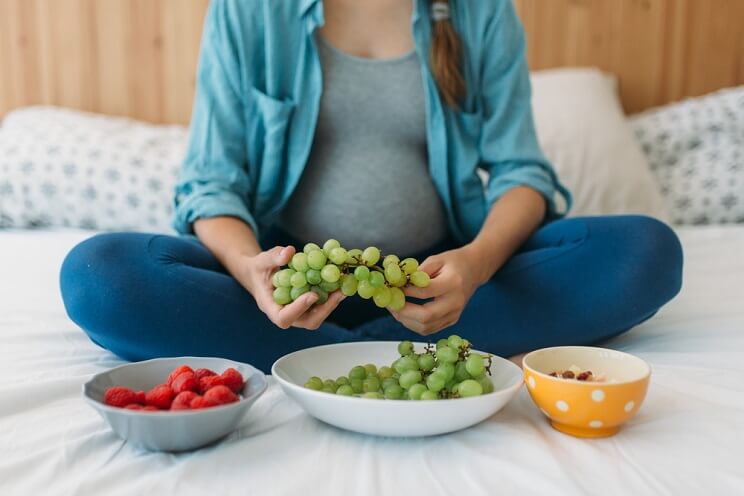
There is a myth that circulates in the natural health and diet worlds that you can eat your way to pregnancy no matter what. Those of us who have existed in the infertility world for any space of time know that while diet and lifestyle can improve many things, they are not always a “cure” for infertility, no matter how strict and devoted you are.
While diet can certainly play a large role in the ability to conceive in some cases, it cannot impact structural problems with reproductive organs. For some women, structural issues with the ovaries or uterus are their primary cause of infertility, and diet alone will not undo that. Fertility issues based on anatomic problems may require medical intervention.
For others, even if diet can help make some improvements, other conditions or diseases will be insurmountable without medical intervention or ART (Assisted Reproductive Technology). These can include clotting disorders, genetic mutations, chromosome problems, advanced maternal age, and premature ovarian failure, to name a few.
While many mean well when they say that following a fertility diet will help women conceive, the fact is that there are some women for whom dietary changes will simply not be enough. This is why it’s vital for women to understand that they need to view their reproductive health from an individual basis, and ensure that they’re getting the support that they need—whether it is diet, medical intervention, lifestyle changes, or ART.
Bottom line: Diets and lifestyle changes can be impactful in many cases, but are by no means the end to all fertility problems.
Folate vs. Folic Acid
Most doctors recommend folic acid supplements for women who are trying to get pregnant or could be pregnant. This is commonly understood to help prevent birth defects.
For women who are struggling to conceive or who have specific genetic mutations, doctors often prescribe even higher doses of folic acid, which is a synthetic form of vitamin B9. B9 in its natural form is found in foods and is referred to as folate. A quick Internet search will reveal that most doctors specifically recommend “folic acid,” and not the natural folate. While folate can also be found in supplement form, folic acid is the gold standard. But it’s a crime, really, because folic acid is not only synthetic and produced in a laboratory quite far from normal dietary sources, but as much as 60% of the population may not be able to properly metabolize or absorb folic acid due to a genetic mutation known as MTHFR (methylenetetrahydrofolate reductase).
MTHFR, especially in women who have two copies of this mutated gene, can be a leading cause of infertility or recurrent miscarriage. (5,6) When women battling these genetic disorders take higher doses of synthetic folic acid, even more complications can develop. Folic acid is a manmade form of the natural form of folate.
Women who are having trouble conceiving or have experienced a miscarriage should speak to their doctors about MTHFR testing, which is done via a simple blood test. Results can necessitate a protocol of taking active folate (L-5MTHF) and/or baby aspirin, along with other potential interventions like heparin or steroid support. I know this protocol well since I found myself on it after seven consecutive miscarriages and a positive test for multiple MTHFR and other similar genetic mutations. For me, it resulted in a healthy baby boy.
Bottom line: Folic acid is a manmade form of the natural form of B9, or folate. The body best knows how to absorb natural nutrients, so whether or not you have MTHFR mutations, taking a non-synthetic form of B9 will always be closest to a food source.
Gut Health Is Essential for Fertility
Beyond genetic problems or hormone imbalances, the gut is a crucial component in reproductive wellness. Not only does digestion and elimination impact the overall balance of nutrient absorption in a woman’s body, but digestive or intestinal problems can be gateways to more serious problems, like autoimmune disorders, thyroid disease, or food sensitivities.
Even if you don’t believe that your gut needs to be healthy to get pregnant, consider that once you do conceive, the fetus takes all its nutrients from you—which come from your digestive system and your gut. This is where diet does play a critical role in fertility and prenatal health, so yes, diet does matter – it just isn’t the magic answer that guarantees pregnancy in all women.
But even if you need ART or other help conceiving, once you do get pregnant, you want your body to be in the best possible condition to nourish your baby, not to mention keep you strong through ten months of pregnancy, and then labor, delivery, and postpartum, which is understandably quite demanding of nutrient stores.
Bottom line: Gut health is important for general well-being and reproductive health, not just to get pregnant, but also to be able to have a healthy pregnancy.
Fertility-Boosting Foods
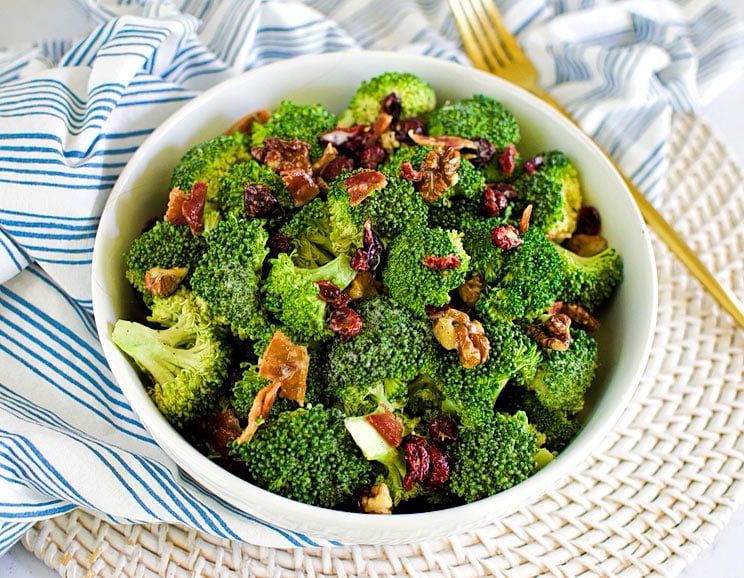
While there is no precise one-size-fits-all diet to ensure fertility, there are definitely foods that contain nutrients known to be beneficial for reproductive hormone production, thyroid hormones, and fetal development. These are foods which also happen to support gut health, are anti-inflammatory, and promote proper digestion.
Broccoli
Rich in natural folate, broccoli also contains 245% daily recommended intake of vitamin K, which is essential for a healthy pregnancy as it promotes proper clotting. Women who have clotting disorders that are causes of infertility should make sure they discuss vitamin K dietary intake with their doctors. In most cases, the advice will be to maintain a steady intake of vitamin K to promote balanced levels.
Try this: Cream of Broccoli Soup with Coconut Milk
Bone Broth
A superfood for gut health, bone broth supports proper digestion and intestinal health thanks to amino acids glutamine and glycine, as well as the high levels of collagen. Bone broth also contains around 6 grams of protein per cup, making it a good blood sugar-balancing snack for early pregnancy.
Try this: Gut-Healing Bone Broth Recipe
Ginger
An anti-inflammatory food that helps to ease aches, pains and upset stomachs, ginger is a perfect preconception food as well as a prenatal superfood. It can be eaten in many forms, including grated, pickled, or steeped as a tea.
Try this: Ginger Turmeric Smoothie
Asparagus
Rich in folate and copper, a nutrient needed for proper thyroid function, asparagus is a fertility powerhouse thanks to its anti-inflammatory properties.
Try this: Roasted Asparagus
Salmon
Omega-3 fatty acids are necessary for fetal brain development, and prior to conceiving, for its anti-inflammatory benefits and healthy protein. Salmon is also rich in vitamin B12, which is necessary for proper utilization of folate, and vitamin D, which is strongly associated with fertility. (7)
Try this: Salmon Burgers with Mango Jicama Slaw
Beets
Another food rich in folate, beets are also a good source of fiber and manganese, an antioxidant nutrient that fights inflammation.
Try this: Easy Beet Chips
Avocado
Last but not least, everyone’s favorite healthy fat: avocado. Rich in pantothenic acid, a nutrient necessary for energy production (and what requires more energy than growing another human being?) and fiber, avocados are a great fertility and prenatal food.
Try this: Easy Baked Avocado & Egg
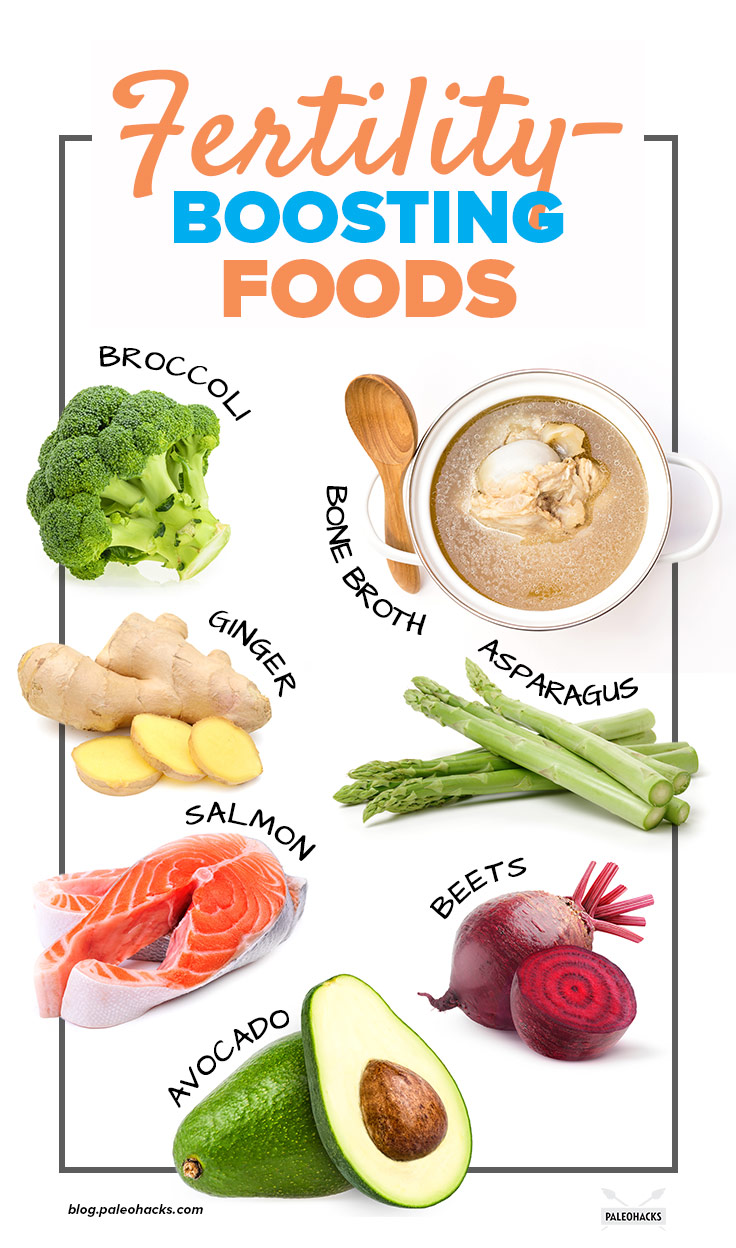
(Read This Next: 12 Best Foods & Herbs to Boost Fertility)


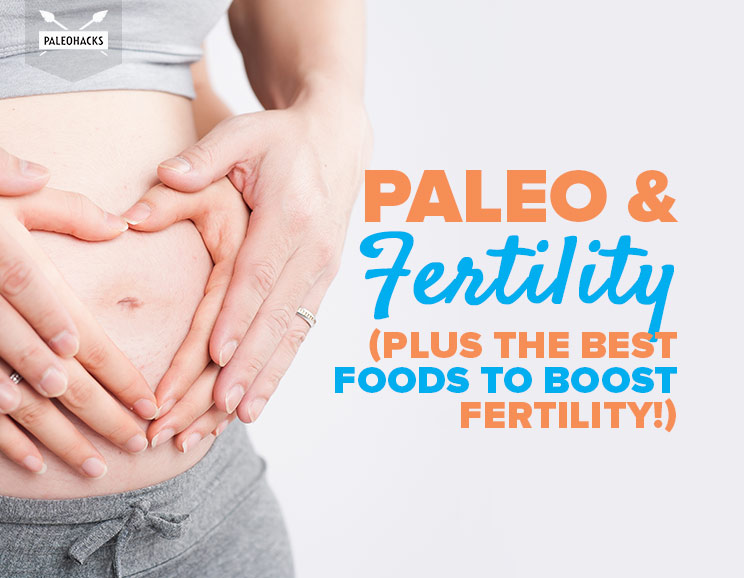
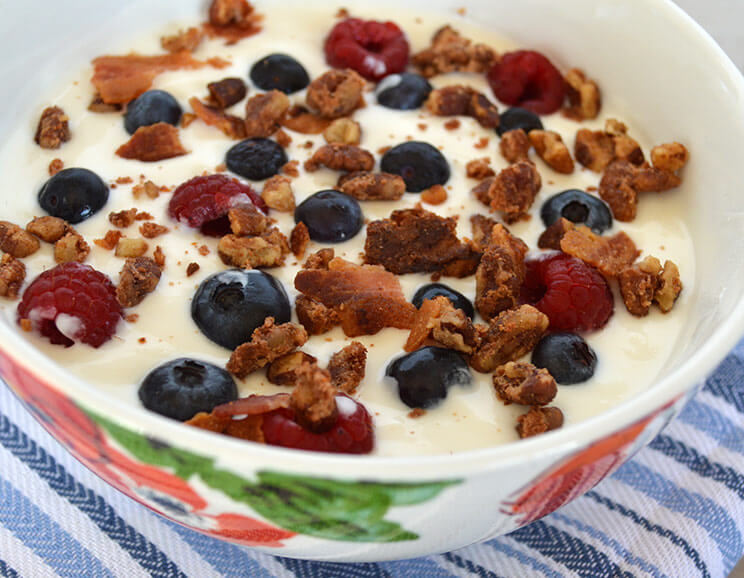 Paleo Maple Pecan Granola with Bacon Sprinkles
Paleo Maple Pecan Granola with Bacon Sprinkles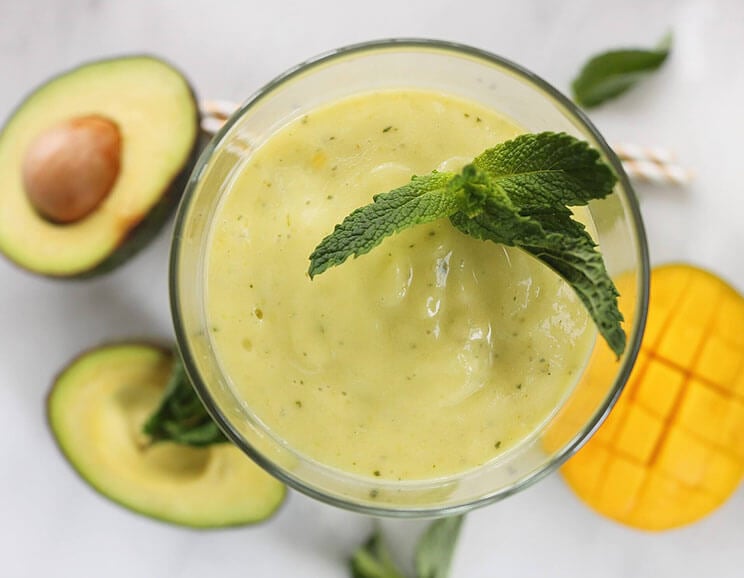
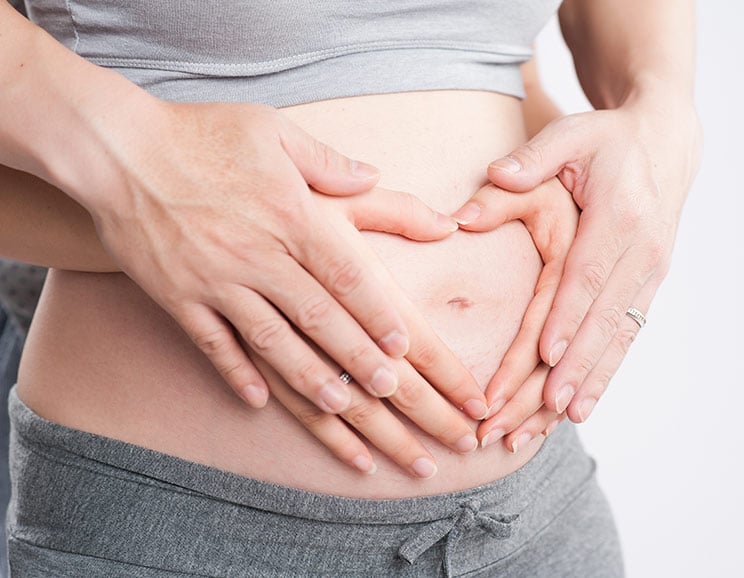


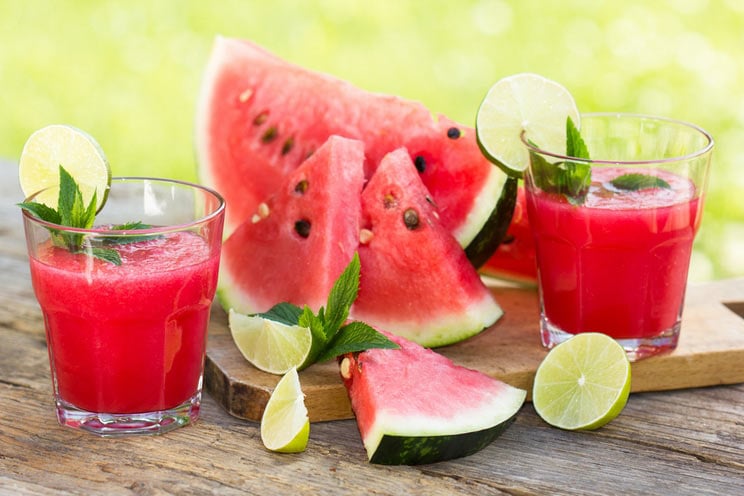
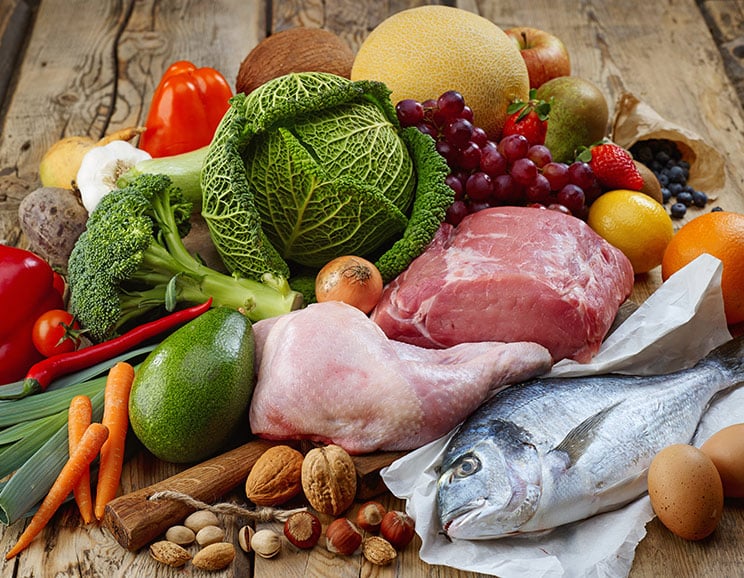




Show Comments